Here are my favorite poems about Romeo and Juliet categorized:
- Short poems about Romeo and Juliet
- Romeo and Juliet poems about love
So if you want the best poems about Romeo and Juliet, then you’re in the right place.
Let’s get into it!
- 61 Bad Break Up Poems
- 115 Sad Breakup Poems for Her
- 77 Heartbreaking Poems About Breakups
- 73 Passionate Love & Pain Poems
- 93 Shattering Poems About Heartbreak
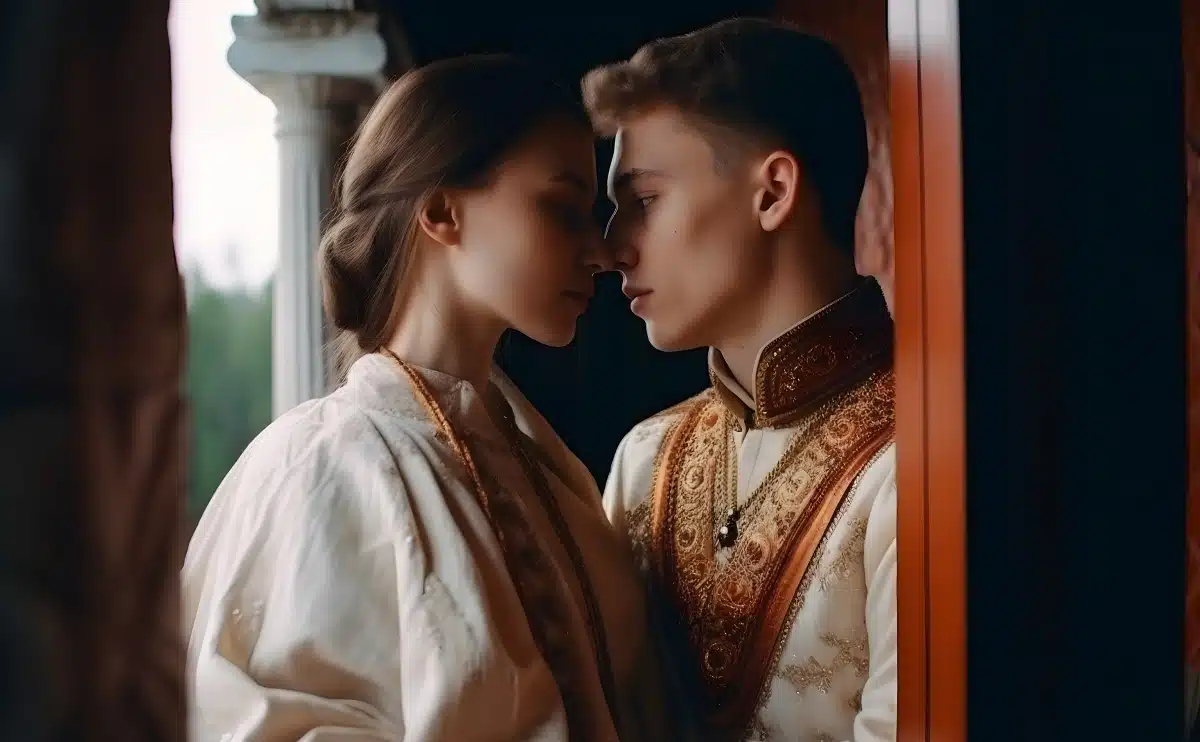
Forbidden Poems About Romeo and Juliet
Dive into a collection of the most passionate poems about Romeo and Juliet, carefully compiled for your literary exploration.
Whether you’re seeking works that delve into the intoxicating allure of their forbidden love, or ponder on the tragic result of their fate-crossed romance, our anthology provides a diverse range of touching examples.
With our thoughtfully curated selection, the best poems about Romeo and Juliet are all comfortably nestled in one location.
So, take a moment to explore and appreciate the beauty and tragedy of these verses that have inspired poets through the ages!
Keep reading and enjoy!
My #1 Favorite Poem About Romeo and Juliet
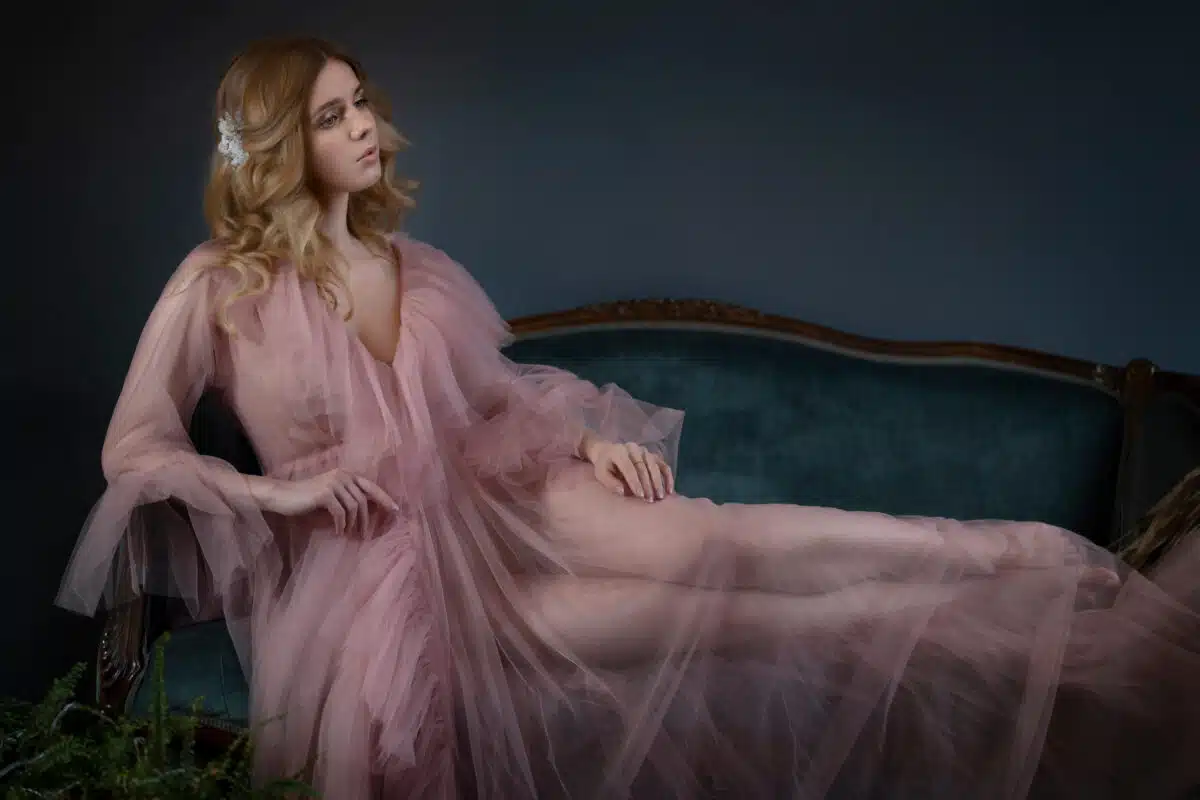
“O, swear not by the moon, the inconstant moon” by William Shakespeare
Juliet:
O, swear not by the moon, the inconstant moon
That monthly changes in her circled orb,
Lest that thy love prove likewise variable.
Do not swear at all;
Or, if thou wilt, swear by thy gracious of self,
Which is the god of my idolatry,
And I’ll believe thee.
Short Poems About Romeo and Juliet

“O speak again bright angel” by William Shakespeare
Romeo:
O speak again bright angel, for thou art
As glorious to this night, being o’er my head,
As is a winged messenger of heaven
Unto the white-upturned wondering eyes
Of mortals that fall back to gaze on him
When he bestrides the lazy-puffing clouds
And sails upon the bosom of the air.
“O, she doth teach the torches to burn bright!” by William Shakespeare
Romeo:
O, she doth teach the torches to burn bright!
It seems she hangs upon the cheek of night
Like a rich jewel in an Ethiop’s ear’:
Beauty too rich for use, for earth too dear!
So shows a snowy dove trooping with crows,
As yonder lady o’er her fellows shows.
The measure done, I’ll watch her place of stand,
And, touching hers, make happy my rude hand.
Did my heart love till now? forswear it, sight!
For I ne’er saw true beauty till this night.
“Sweet, good night!” by William Shakespeare
Juliet:
Sweet, good night!
This bud of love, by summer’s ripening breath,
May prove a beauteous flower when next we meet.
Good night, good night! as sweet repose and rest
Come to thy heart, as that within my breast!

“These violent delights have violent ends” by William Shakespeare
Friar:
These violent delights have violent ends,
And in their triumph die: like fire and powder,
Which, as they kiss, consume: The sweetest honey
Is loathsome in his own deliciousness,
And in the taste confounds the appetite:
Therefore, love moderately; long love doth so;
Too swift arrives as tardy as too slow.
“What devil art thou, that dost torment me thus?” by William Shakespeare
Juliet:
What devil art thou , that dost torment me thus?
This torture should be roar’d in dismal hell.
Hath Romeo slain himself? say thou but I,
And that bare vowel I shall poison more
Than the death-darting eye of cockatrice:
I am not I, if there be such an I;
Or those eyes shut, that make thee answer, I.
If he be slain , say—I; or if not, no:
Brief sounds determine of my weal, or woe.
“Wash they his wounds with tears?” by William Shakespeare
Wash they his wounds with tears? mine shall be spent,
When theirs are dry, for Romeo’s banishment.
Take up those cords:—Poor ropes, you are beguild,
Both you and I; for Romeo is exild:
He made you for a highway to my bed;
But I, a maid, die maiden-widowed.
Come, cords; come, nurse; I’ll to my wedding bed;
And death, not Romeo, take my maidenhead!
O find him! give this ring to my true knight,
And bid him come to take his last farewell.
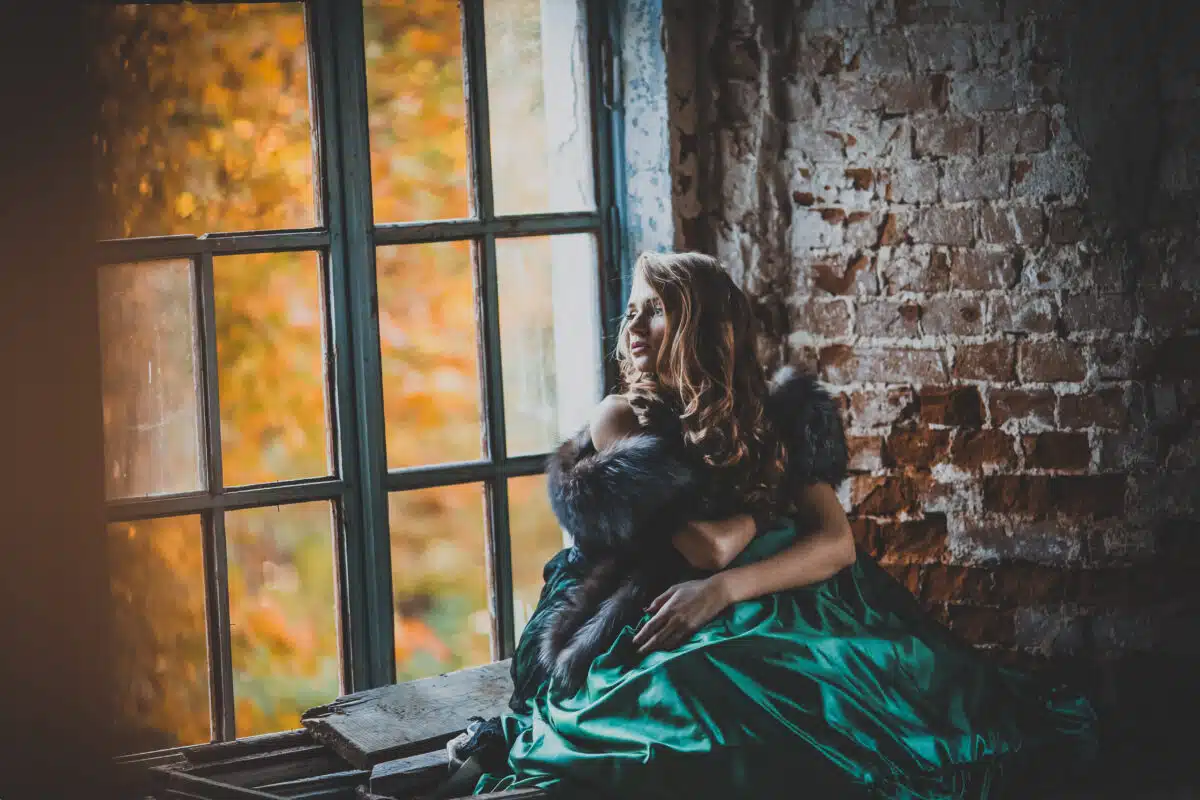
“Wilt thou be gone?” by William Shakespeare
Juliet:
Wilt thou be gone? it is not yet near days:
It was the nightingale, and not the lark,
That pierc’d the fearful hollow of thine ear;
Nightly she sings on yon pomegranate tree:
Believe me, love, it was the nightingale.
Yon light is not day-light, I know it, I:
It is some meteor that the sun exhales,
To be to thee this night a torch-bearer,
And light thee on thy way to Mantua:
Therefore stay yet, thou need’st not to be gone.
“Let me be ta’en, let me be put to death” by William Shakespeare
Romeo:
Let me be ta’en, let me be put to death;
I am content, so thou wilt have it so.
I’ll say, yon grey is not the morning’s eye,
‘Tis but the pale reflex of Cynthia’s brow;
Nor that is not the lark, whose notes do beat
The vaulty heaven so high above our heads:
I have more care to stay, than will to go?:
Come, death , and welcome! Juliet wills it so—
How is’t, my soul ? let’s talk, it is not day.
Romeo and Juliet Poems About Love
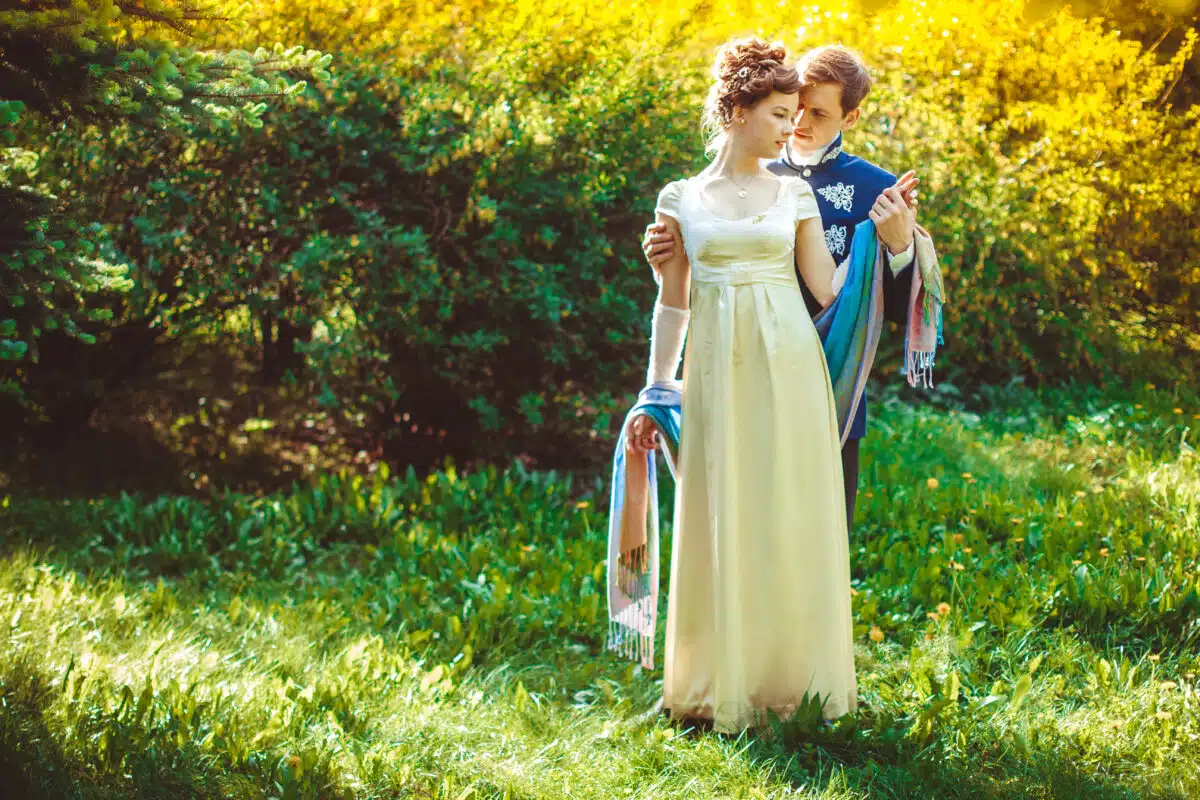
“O Romeo, Romeo, wherefore art thou Romeo?” by William Shakespeare
Juliet:
O Romeo, Romeo, wherefore art thou Romeo?
Deny thy father and refuse thy name.
Or if thou wilt not, be but sworn my love
And I’ll no longer be a Capulet.
‘Tis but thy name that is my enemy:
Thou art thyself, though not a Montague.
What’s Montague? It is nor hand nor foot
Nor arm nor face nor any other part
Belonging to a man. O be some other name.
What’s in a name? That which we call a rose
By any other name would smell as sweet;
So Romeo would, were he not Romeo call’d,
Retain that dear perfection which he owes
Without that title. Romeo, doff thy name,
And for that name, which is no part of thee,
Take all myself.
“Why such is love’s transgression” by William Shakespeare
Romeo:
Why such is love’s transgression.
Griefs of mine own lie heavy in my breast,
Which thou wilt propagate to have it prest
With more of thine. This love that thou hast shown
Doth add more grief to too much of mine own.
Love is a smoke made with the fume of sighs;
Being purg’d, a fire sparkling in lovers’ eyes;
Being vex’d, a sea nourish’d with lovers’ tears:
What is it else? A madness most discreet,
A choking gall, and a preserving sweet.
Farewell, my coz.
“Alas that love, whose view is muffled still” by William Shakespeare
Romeo:
Alas that love, whose view is muffled still,
Should, without eyes, see pathways to his will!
Where shall we dine? O me! What fray was here?
Yet tell me not, for I have heard it all.
Here’s much to do with hate, but more with love:
Why, then, O brawling love! O loving hate!
O anything, of nothing first create!
O heavy lightness! serious vanity!
Misshapen chaos of well-seeming forms!
Feather of lead, bright smoke, cold fire, sick health!
Still-waking sleep, that is not what it is!
This love feel I, that feel no love in this.
Dost thou not laugh?
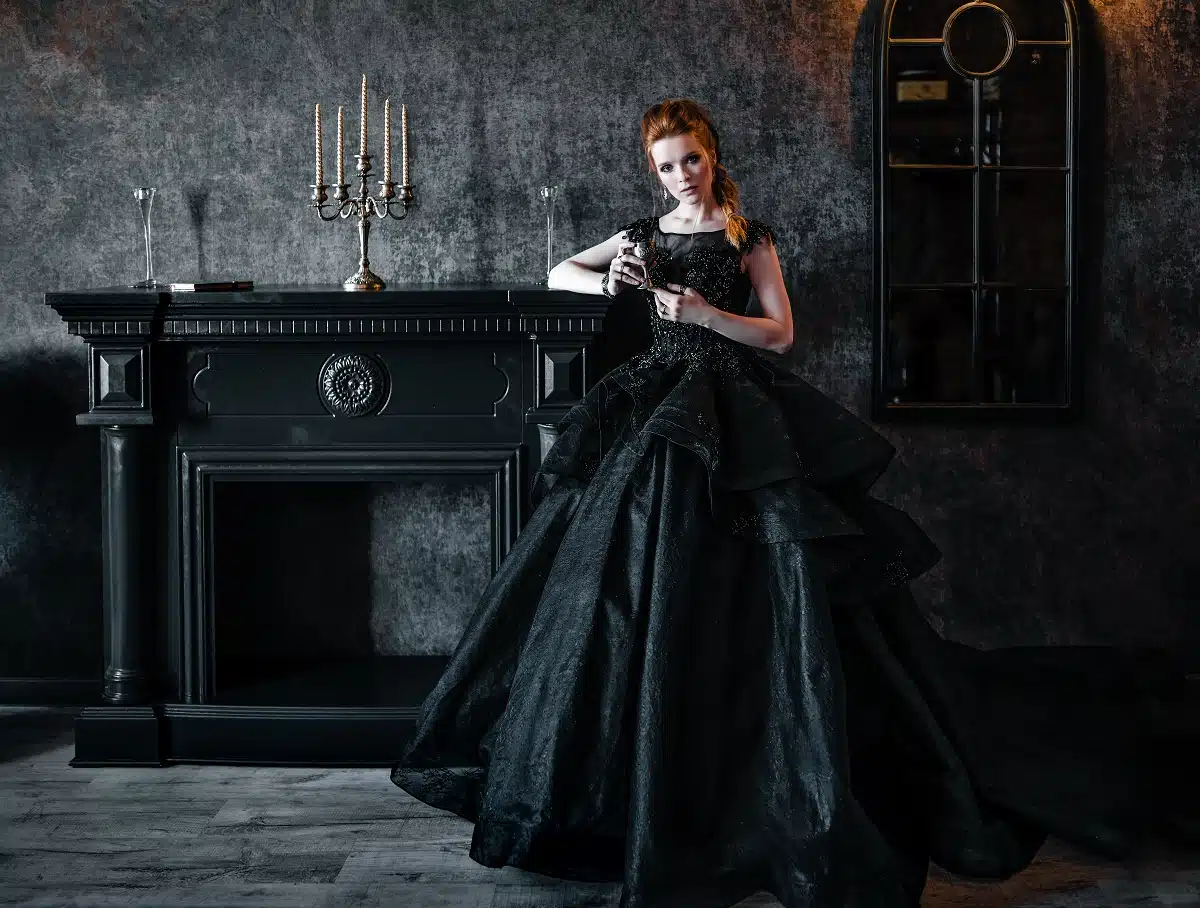
“Thou know’st, the mask of night is on my face” by William Shakespeare
Juliet:
Thou know’st, the mask of night is on my face;
Else would a maiden blush be paint my cheek,
For that which thou hast heard me speak to-night.
Fain would I dwell on form , fain , fain deny
What I have spoke; But farewell compliment!
Dost thou love me? I know, thou wilt say—Ay;
And I will take thy word: yet, if thou swear’st,
Thou may’st prove false; at lovers’ perjuries,
They say, Jove laughs’. O, gentle Romeo,
If thou dost love, pronounce it faithfully:
Or if thou think’st I am too quickly won,
I’ll frown, and be perverse, and say thee nay,
So thou wilt woo; but, else, not for the world.
In truth , fair Montague, I am too fond;
And therefore thou may’st think my haviour light:
But trust me, gentleman, I’ll prove more true
Than those that have more cunning to be strange.
I should have been more strange, I must confess,
But that thou over-heard’st, ere I was ware,
My true love’s passion: therefore pardon me;
And not impute this yielding to light love,
Which the dark night hath so discovered.
“But, soft! what light through yonder window breaks!” by William Shakespeare
(Juliet appears above the window)
Romeo:
But, soft! what light through yonder window breaks!
It is the east, and Juliet is the sun!
Arise, fair sun, and kill the envious moon,
Who is already sick and pale with grief,
That thou her maid art far more fair than she:
Be not her maid, since she is envious;
Her vestal livery is but sick and green,
And none but fools do wear it; cast it off.—
It is my lady; O, it is my love:
O, that she knew she were!—
She speaks, yet she says nothing; What of that ?
Her eye discourses, I will answer it .
I am too bold, ’tis not to me she speaks:
Two of the fairest stars in all the heavens
Having some business, do entreat her eyes
To twinkle in their spheres till they return.
What if her eyes were there, they in her head?
The brightness of her cheek would shame those stars,
As day-light doth a lamp ; her eye in heaven
Would through the airy region stream so bright,
That birds would sing, and think it were not night.
See, how she leans her cheek upon her hand!
O, that I were a glove upon that hand”,
That I might touch that cheek!
“Spread thy close curtain, love-performing night!” by William Shakespeare
Juliet:
Spread thy close curtain, love-performing night!
That run-away’s eyes may wink?; and Romeo
Leap to these arms, untalk’d of, and unseen!—
Lovers can see to do their amorous rites
By their own beauties: or, if love be blind ,
It best agrees with night.—Come, civil night”,
Thou sober-suited matron, all in black,
And learn me how to lose a winning match,
Play’d for a pair of stainless maidenhoods:
Hood my unmann’d blood ‘ bating in my cheeks,
With thy black mantle; till strange love, grown bold,
Think true love acted, simple modesty.
Come, night!—Come, Romeo! come thou day in night!
For thou wilt lie upon the wings of night
Whiter than new snow upon a raven’s back
Come, gentle night; come, loving, black-brow’d night,
Give me my Romeo: and, when he shall die,
Take him and cut him out in little star
And he will make the face of heaven so fine,
That all the world will be in love with night,
And pay no worship to the garish sun.
0, I have bought the mansion of aa love ,
But not possess’d it; and, though I am sold,
Not yet enjoy’d: So tedious is this day,
As is the night before some festival
To an impatient child that hath new robes,
And may not wear them.

“Hold thy desperate hand” by William Shakespeare
Friar:
Hold thy desperate hand:
Art thou a man? thy form cries out, thou art;
Thy tears are womanish; thy wild acts denote
The unreasonable fury of a beast:
Unseemly woman?, in a seeming man!
Or ill-beseeming beast, in seeming both!
Thou hast amaz’d me: by my holy order,
I thought thy disposition better temper’d.
Hast thou slain Tybalt? wilt thou slay thyself?
And slay thy lady too that lives in thee,
By doing damned hate upon thyself?
Why rail’st thou on thy birth , the heaven, and earth?
Since birth, and heaven, and earth , all three do meet
In thee at once; which thou at once would’st lose.
Fye, fye! thou sham’st thy shape, thy love, thy wit;
Which, like an usurer, abound’st in all,
And usest none in that true use indeed
Which should bedeck thy shape, thy love, thy wit.
Thy noble shape is but a form of wax,
Digressing from the valour of a man:
Thy dear love, sworn, but hollow perjury,
Killing that love which thou hast vowd to cherish:
Thy wit, that ornament to shape and love,
Mis- shapen in the conduct of them both,
Like powder in a skill- less soldier’s flask?,
Is set on fire by thine own ignorance,
And thou dismember’d with thine own defence.
What, rouse thee, man ! thy Juliet is alive,
For whose dear sake thou wast but lately dead;
There art thou happy: Tybalt would kill thee,
But thou slew’st Tybalt; there art thou happy too:
The law , that threaten’d death, becomes thy friend,
And turns it to exíle; there art thou happy too:
A pack of blessings lights upon thy back;
Happiness courts thee in her best array;
But, like a mis -behav’d and sullen wench,
Thou pout’st upon thy fortune and thy love.
Take heed, take heed, for such die miserable.
Go, get thee to thy love, as was decreed,
Ascend her chamber, hence and comfort her.
“If, in thy wisdom, thou canst give no help” by William Shakespeare
Juliet:
Tell me not, friar, that thou hear’st of this,
Unless thou tell me how I may prevent it:
If, in thy wisdom, thou canst give no help,
Do thou but call my resolution wise,
And with this knife I’ll help it presently.
God join’d my heart and Romeo’s, thou our hands;
And ere this hand, by thee to Romeo seald,
Shall be the label to another deed ,
Or my true heart with treacherous revolt
Turn to another, this shall slay them both :
Therefore, out of thy long-experienc’d time,
Give me some present counsel; or , behold,
‘”Twixt my extremes and me this bloody knife
Shall play the umpire”; arbitrating that
Which the commission of thy years and art
Could to no issue of true honour bring.
Be not so long to speak; I long to die,
If what thou speak’st speak not of remedy.
“‘Tis torture, and not mercy” by William Shakespeare
Romeo:
‘Tis torture, and not mercy: heaven is here,
Where Juliet lives; and every cat, and dog,
And little mouse, every unworthy thing,
Live here in heaven, and may look onher,
But Romeo may not. —More validity,
More honourable state, more courtship lives
In carrion flies, than Romeo”: they may seize
On the white wonder of dear Juliet’s hand,
And steal immortal blessing from her lips;
Who, even in pure and vestal modesty,
Still blush , as thinking their own kisses sin;
But Romeo may not; he is banished:
Flies may do this, when I from this must fly;
They are free men, but I am banished.
And say’st thou yet, that exile is not death ?
Hadst thou no poison mix’d, no sharp – ground knife,
No sudden mean of death , though ne’er so mean ,
But —banished—to kill me; banished?
O friar, the damned use that word in hell ;
Howlings attend it: How hast thou the heart,
Being a divine, a ghostly confessor,
A sin -absolver, and my friend profess’d ,
To mangle me with that word— banishment?
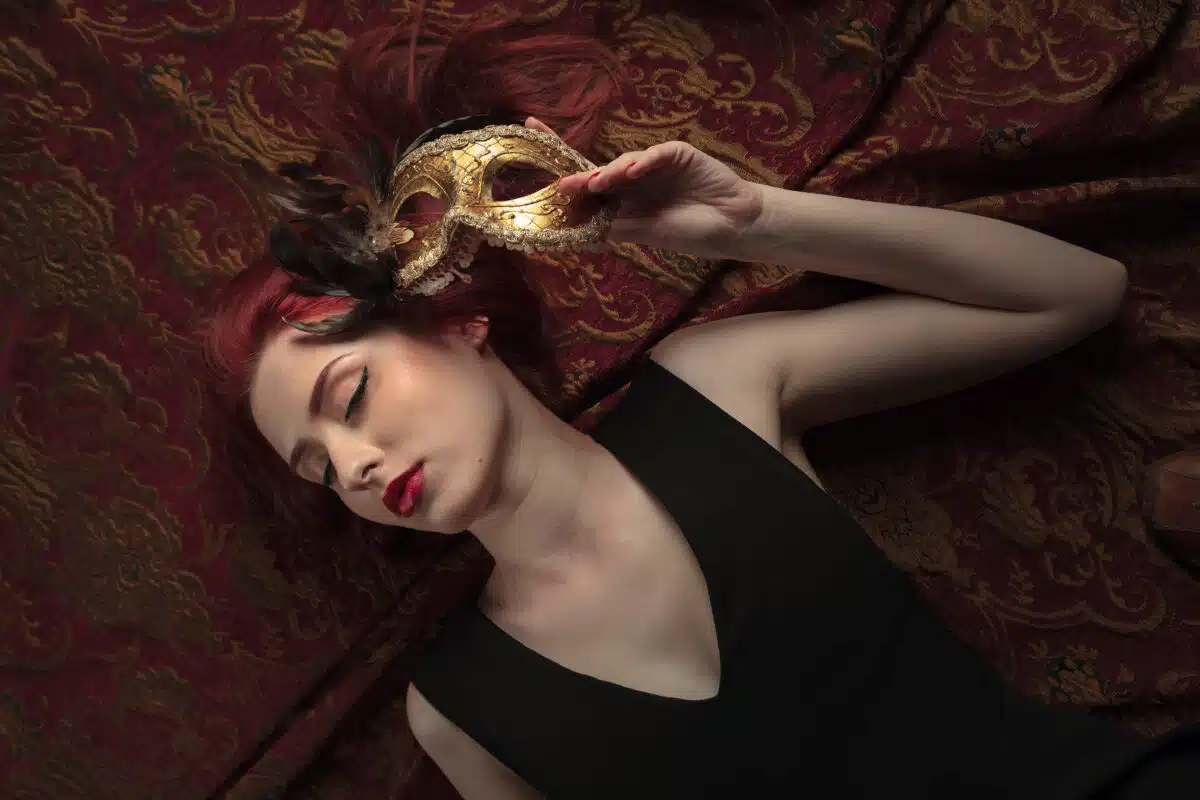
“Their course of love, the tidings of her death” by William Shakespeare
Prince:
Their course of love, the tidings of her death:
And here he writes—that he did buy a poison
Of a poor ‘pothecary, and therewithal
Came to this vault to die, and lie with Juliet.
Where be these enemies? Capulet! Montague!
See, what a scourge is laid upon your hate,
That heaven finds means to kill your joys with love!
And I, for winking at your discords too ,
Have lost a brace of kinsmen: —all are punish’d.
A glooming peace this morning with it brings;
The sun, for sorrow, will not show his head:
Go hence, to have more talk of these sad things;
Some shall be pardon’d, and some punished”:
For never was a story of more woe,
Than this of Juliet and her Romeo.
